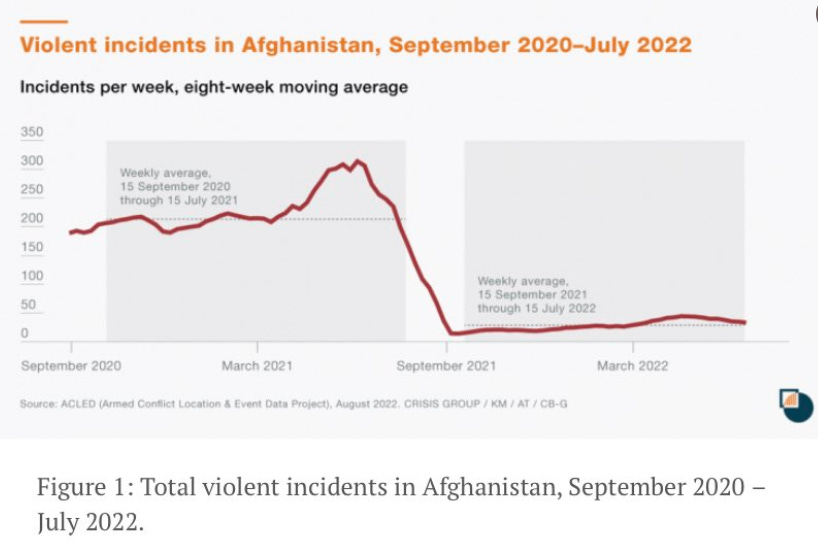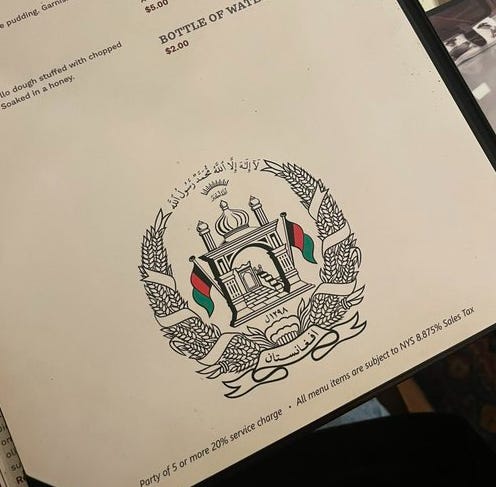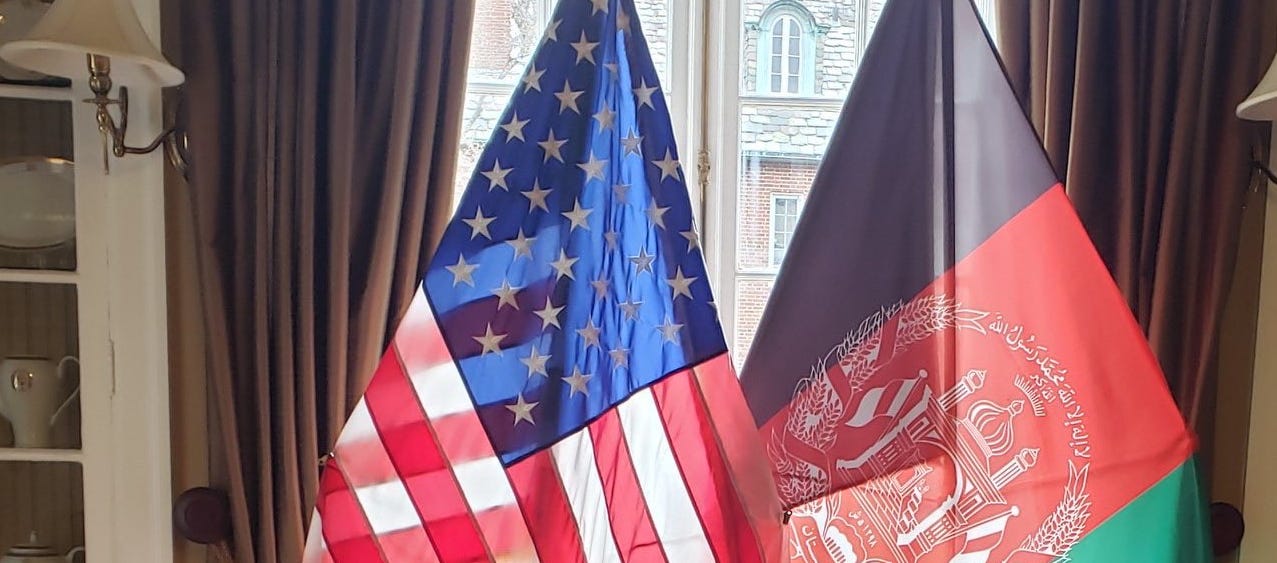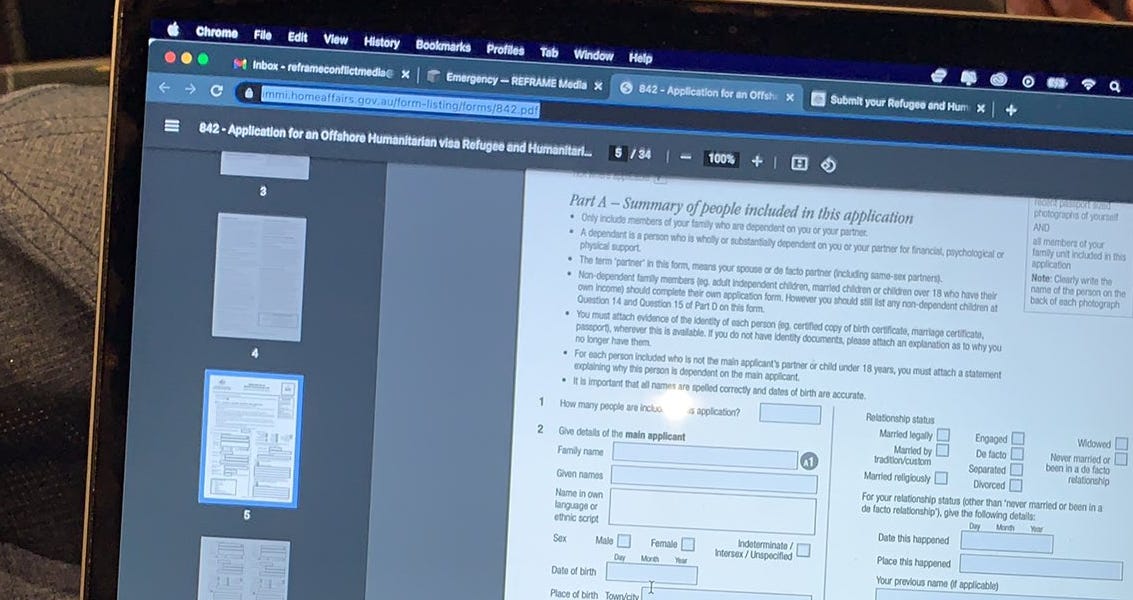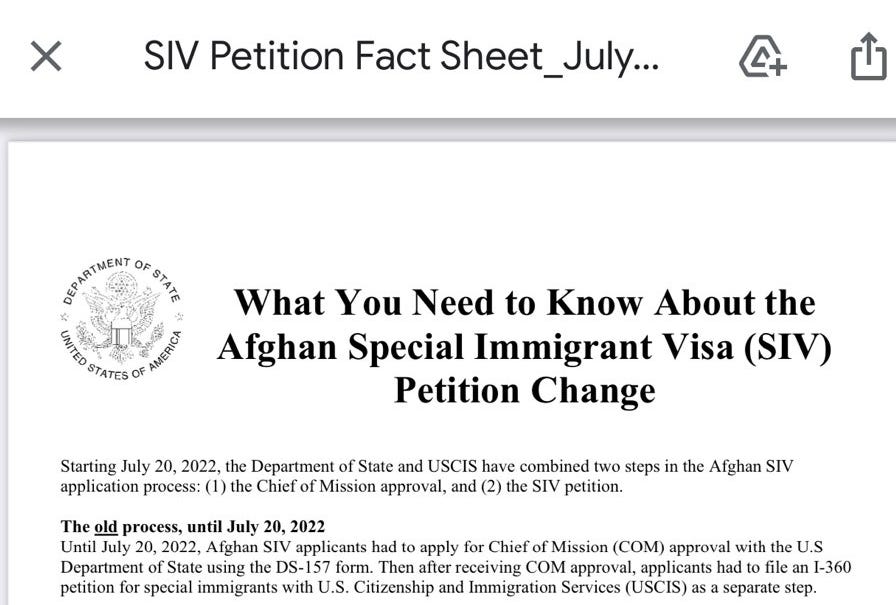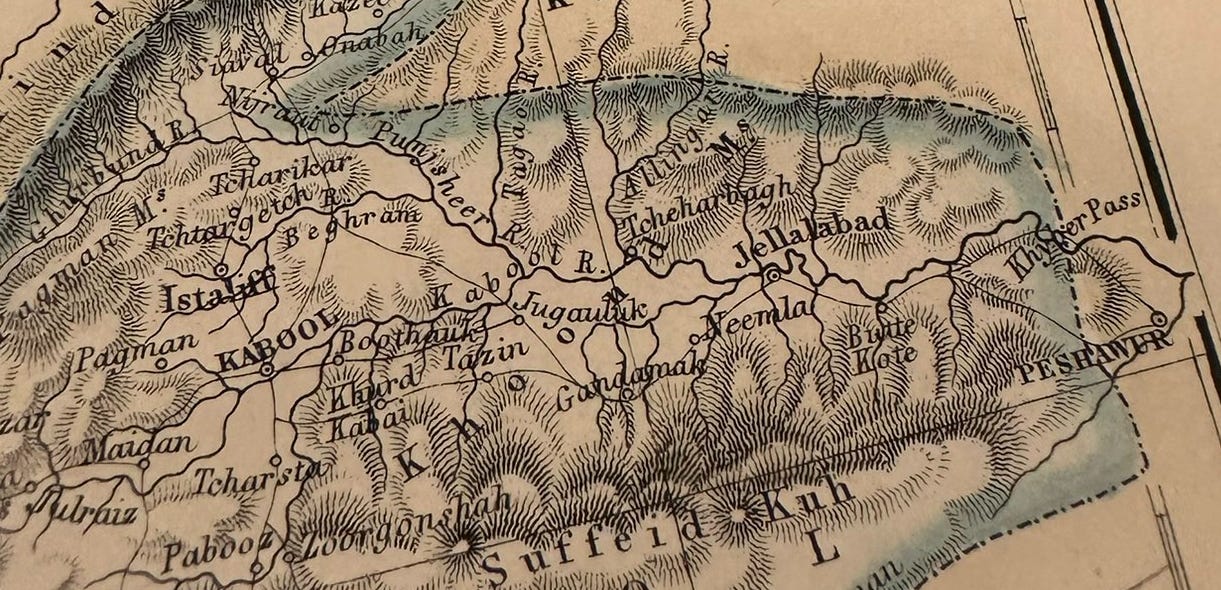Mursal Nabizada was a member of the Afghan parliament. She stayed in Afghanistan. She did not leave after the Taliban took over the country.
Former MP Nabizada was shot dead in her home today. If a high ranking women figure gets a shot in her head, in her home, imagine a lesser figure in Afghanistan, men or women. Afghanistan is hell on earth for women.
The case for staying in Afghanistan is as poor today as it was when the withdrawal took place 1,5 years ago. The Taliban, after all, are a bunch of loathsome individuals. But overall violence in Afghanistan has plummeted since the war concluded in August 2021 (West allies withdrawn). The Afghan people are suffering immense economic difficulty at the moment. There’s extreme pain in the country, including a food crisis impacting about half the population. Do they really need a resumption of widespread violence on top of all this? But a victim like Mursal, and still counting day-by-day, is heinous.
The Biden admin still hasn’t taken action over the Taliban’s latest curbs on women. And while we’re at it, where are American progressives as the Taliban effectively erase women’s rights in Afghanistan? And no, complaining about the U.S. freezing Afghan central bank funds isn’t the same thing. In fairness, President Biden doesn’t want to talk about Afghanistan either. And because of the calamity in Ukraine - Russia, plus, in Pacific (China - Taiwan), reporters aren’t asking him enough about it. Putin didn’t invade Ukraine because Biden left Afghanistan. The PLA Chinese didn’t greenlight military exercises around Taiwan because Biden left Afghanistan. No. Stop assuming like this.
During intense fighting in the eastern Donbass or Soledar currently, Russia used more ammunition in two days than the British military has in stock.' NATO was rinsed off Afghanistan by sandalled goat herders with rusty AK-47s on the back of pick-up trucks. The situation in Ukraine is a bit different. We aren’t talking about nuclear missiles being pointed at American and Russian cities, but rather Putin possibly using a tactical nuke. Still, communication and level-headedness are essential. Like the last meeting in Ankara between CIA Burns and his Russian counterparts in Ankara (November 14th, 2022).
Hopefully the U.S. House Foreign Affairs Committee spends at least as much time examining the entire 20-year Afghanistan enterprise—and the naïveté of the U.S. policy/political establishment that drove it—as it does on the last 30 days of the war, so U.S. government (and military) not repeating a wrong decision especially after CSIS report 226 (simulation war, China vs Taiwan — with help by the U.S. and Japan). There’s a tendency in Washington policy circles to treat global politics as one, giant game of checkers—what the U.S. may or may not do in one part of the world will have a direct bearing on how states react in another. Probably why primacy is a default. How many times this argument was used to support a long-term U.S. military presence in Afghanistan. The U.S. government and military can’t leave because U.S. allies in Asia will start doubting U.S. credibility and resolve. And yet, the alliance system remains intact.
Focusing on the Aug 2021 Afghanistan withdrawal in a great way to avoid probing the mountain of mistakes committed by policymakers and generals across four successive administrations. Let’s not truncate 20 years into 30 days. It’s the height of irony that Pakistan, which sheltered and armed the Taliban insurgency for decades, causing so much pain and misfortune to Americans and Afghans alike, is confronting the now-Taliban government for hosting anti-Pakistani militant groups like the TTP. Islamabad was apparently under the illusion the Taliban would roll over and take orders from Pakistan—or at the very least take Pakistani interests into account. Pakistan is facing the very same problem—cross-border militancy—it spent so many years enabling. Far from a docile Afghanistan, Pakistan is actually watching its former proxy reaching out to India. U.S. allies certainly have not behaved as if the U.S. exit from Afghanistan was a scary wakeup call. If anything, the U.S. has too much credibility among its allies.
The Biden administration is grappling with how to respond to new Taliban restrictions on women’s rights in Afghanistan, knowing that punishing the ruling Islamists risks rupturing the limited relationship the United States has with them.
The discussion among administration officials is fluid and positions have varied depending on the proposed penalties, a current administration official and a former U.S. official familiar with the talks said. Those proposals include new economic sanctions and tighter bans on Taliban leaders’ travels abroad, as well as limiting certain types of humanitarian aid to Afghanistan.
But in broad terms, according to the current and former officials, the debate has pitted Tom West, the U.S. special representative for Afghanistan, against Rina Amiri, the U.S. special envoy for Afghan women, girls and human rights. West is wary of going too far in isolating the Taliban, with whom the U.S. tries to cooperate on counter-terrorism, while Amiri wants to get tougher on them as they try to erase women from public life.
While insisting that the Taliban will face consequences, a State Department spokesperson on Thursday downplayed claims of differences between West and Amiri. In the latest deliberations, “Tom and Rina have been of a similar mind” and “in the same camp advocating for similar accountability mechanisms.” The spokesperson, however, would not describe the mechanisms being discussed or how far each official wanted to go.
Nearly 19 months after the U.S. military left and the Taliban took charge, Afghanistan’s deepening misery is a growing blight on President Joe Biden’s human rights record. It’s a topic that Republicans, who are taking control of the House, are likely to hammer as they launch investigations into the administration’s handling of Afghanistan.
But while Biden has long said that human rights are central to his foreign policy, he has defended his decision to pull U.S. troops from Afghanistan after a 20-year war effort. In the past, Biden has said the U.S. doesn’t bear responsibility for the fate of Afghan women and girls. He has largely avoided talking about the country in recent months, fueling a sense of helplessness among administration staffers grappling with how to respond to the growing crisis.
“We knew this was coming but dreaded it and couldn’t stop it,” said the current official, who, like the State Department spokesperson and others, requested anonymity to describe sensitive internal administration conversations.
White House National Security Council spokesperson Adrienne Watson dismissed the idea that Biden was disengaged on the topic. She pointed to his mentioning the repression of Afghan women and girls during his speech last September to the United Nations General Assembly.
“As soon as the Taliban announced additional restrictive measures, the president directed his team to quickly assess the implications for our assistance programs and coordinate with partners to make clear to the Taliban that they will only be further isolated from the world and not get the legitimacy they seek,” Watson added.
The Taliban leadership’s latest edicts, issued last month, bar women from universities and from working for many NGOs — leading several humanitarian groups to suspend operations in Afghanistan, where millions face starvation and other insecurity.
Months ago, the militant group’s top leaders barred girls from secondary schools, and they also have issued other decrees that ban women and girls from certain public spaces and jobs. There are fears they will ultimately bar girls from primary school.
The current administration official said there are interagency meetings scheduled this week to discuss a U.S. response, but a decision may not come until next week, or delayed (again).
Washington has some leverage over the Taliban, both diplomatically and economically. The Taliban have sought international recognition as a government, and they also want foreign investment. The United States has sway over billions of dollars in Afghan funds that could help stabilize the country’s economy, and American sanctions have ripple effects that deter foreign investment.
But the Taliban have leverage, too, including the freedom they give to terrorist groups that operate from Afghan soil. Former Al Qaeda chief and 9/11 attacks plotter Osama bin Laden used Afghanistan as a base. Last year, his successor, Ayman al-Zawahiri, was killed by a U.S. drone strike in Kabul. The Islamic State terrorist group, meanwhile, is a Taliban rival and U.S. foe that has staged a number of attacks in Afghanistan over the past year and a half.
Cooperation on counterterrorism is just one of many factors that U.S. officials including West and Amiri — neither of whom responded to requests for comment — have to consider as they weigh how to respond to the Taliban’s human rights abuses.
The differences between West and Amiri are not massive and are more a matter of degree — both want to hold the Taliban accountable. Their stances also reflect their specific jobs, the current administration official said. “It’s generally true that Tom wants to find some way to keep working with the Taliban. I think he thinks that’s his mandate from the president,” the official said. “Rina has a more human rights-principled approach — do what we should do and let the chips fall where they may.”
To make things harder, the Taliban’s top leaders are deeply conservative Islamists who appear personally immune to most U.S. economic sanctions and travel bans; they are unlikely to have many financial assets outside Afghanistan and don’t travel much. They are said to be based in the southern Afghan city of Kandahar.
If the United States decides to cut or change humanitarian aid to Afghanistan as part of its penalties, it’s unlikely to be severe, the current official said.
U.S. officials have little — if any — contact with these top Taliban figures, which include the group’s No. 1 leader or “emir,” Haibatullah Akhundzada, said former U.S. officials in touch with the administration. Instead, U.S. officials deal with the Taliban’s more public faces in Kabul and in third party countries such as Qatar, but those people have less power.
Even if U.S. officials set aside diplomatic sensitivities and were willing to publicly engage with Akhundzada, the secretive Taliban leader is unlikely to agree to meet: China already made a better offer.
Not all Taliban members support Akhundzada’s deeply conservative approach to women and girls’ rights. In fact, one prominent Taliban figure, Sirajuddin Haqqani, is believed to support educating girls and women, said a second current U.S. official familiar with the Afghan file. The Haqqani network is among the most violent Taliban factions.
Still, the Taliban have a strong central structure, so even more progressive elements defer to the conservative leadership, the U.S. official said. That makes it hard for the United States to sow division in the group.
Suhail Shaheen, a Taliban official, insisted that the education bans were only temporary. He referred questions about the NGO work bans to another Taliban official who could not be reached for comment.
Afghan officials are “working in full swing” to ensure a “conducive environment” for women’s education, Shaheen wrote. “None is against women’s education per se, but they want women [to] receive education in an environment compliant to our values and rules,” he said, in a nod to strict Islamic law.
But the Taliban, which ruled Afghanistan for much of the 1990s, have previously claimed that such bans are temporary, only to keep schools closed to girls.
Lisa Curtis, who oversaw Afghanistan at the National Security Council in the Trump administration, argued that Biden aides should use sanctions as well as other tools to pressure the Taliban. The administration can, for instance, engage more publicly with Afghan opposition leaders or re-open the Afghan Embassy in Washington but under the control of non-Taliban figures, she said.
“It’s been almost 18 months. The Taliban has not changed,” she said. “At some point there has to be consequences.”
Others outside the Biden team, however, said it would be a mistake to further isolate the militant movement. In the long run, for the good of all Afghans, engagement is critical, said a former U.S. official familiar with the issue.
“We need to own up to the fact that our policy of shrilly criticizing them every five minutes isn’t working,” the former official said.
A former U.S. diplomat also familiar with the Afghan file argued that one approach is for the United States to lower its profile and empower institutions such as the United Nations to pressure the militant rulers.
The current strategy isn’t working, the former diplomat said, and in the meantime, “this country has so grievously erased the basic rights of half its citizens.”





